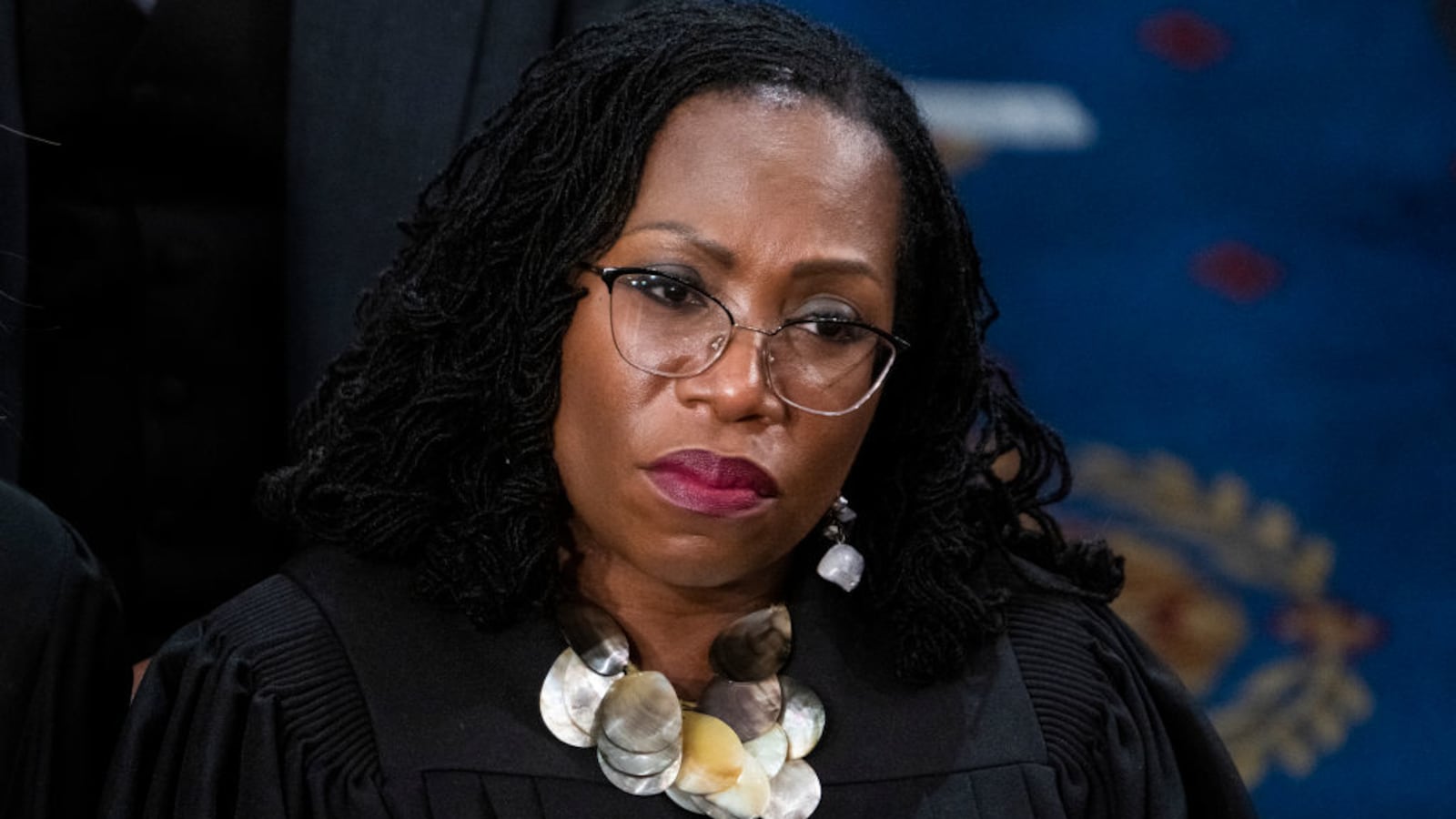Justice Ketanji Brown Jackson, the first Black woman to serve on the Supreme Court, pulled no punches when criticizing her conservative counterparts Thursday for ruling to ban affirmative action in American universities, saying they acted with “let-them-eat-cake obliviousness.”
Jackson did not hide her rage that the court, which has a 6-3 conservative majority, believed the University of North Carolina’s affirmative action admission policies were unconstitutional under the Fourteenth Amendment’s Equal Protection Clause.
“Our country has never been so colorblind,” Jackson wrote. “Given the lengthy history of state-sponsored, race-based preferences in America, to say that anyone is now victimized if a college considers whether that legacy of discrimination has unequally advantaged its applicants fails to acknowledge the well-documented ‘intergenerational transmission of inequality’ that still plagues our citizenry.”
The court also ruled against Harvard, saying it can no longer enact stricter admission standards for Asian American students—an effort to help maintain diversity on campus. Jackson, who serves on Harvard’s Board of Overseers, recused herself from that ruling.
She was poignant in her dissent to Thursday’s ruling, writing that “no one benefits from ignorance.”
“With let-them-eat-cake obliviousness, today, the majority pulls the ripcord and announces ‘colorblindness for all’ by legal fiat,” she wrote. “But deeming race irrelevant in law does not make it so in life. And having so detached itself from this country’s actual past and present experiences, the Court has now been lured into interfering with the crucial work that UNC and other institutions of higher learning are doing to solve America’s real-world problems.”
Read Jackson’s full dissent below, from page 209.
Also apparently enraged was Justice Sonia Sotomayor—the only justice remaining from the court’s landmark decision in 2016 that briefly upheld affirmative action’s legality in American universities.
In her own dissent, Sotomayor wrote, “entrenched racial inequality remains a reality today.” She also criticized the court’s majority for concluding that “indifference to race is the only constitutionally permissible means” to achieving racial equality in admissions.
“That interpretation of the Fourteenth Amendment is not only contrary to precedent and the entire teachings of our history,” she wrote, “but is also grounded in the illusion that racial inequality was a problem of a different generation.”
She added, “Ignoring race will not equalize a society that is racially unequal. What was true in the 1860s, and again in 1954, is true today: Equality requires acknowledgement of inequality.”
Sotomayor and Jackson’s opinions weren’t enough to trump the court’s 6-3 majority, which has recently upended several long-standing rulings, like abortion protections enacted by the court’s decision in Roe v. Wade in 1973.

Supreme Court Justice Clarence Thomas and Chief Justice John Roberts.
Alex Wong/GettyChief Justice John Roberts wrote that the court’s majority felt universities must accept the most-qualified applicant without taking race into consideration, a potentially crucial blow to diversity in higher education.
“The student must be treated based on his or her experiences as an individual—not on the basis of race,” Roberts wrote. “Many universities have for too long done just the opposite. And in doing so, they have concluded, wrongly, that the touchstone of an individual’s identity is not challenges bested, skills built, or lessons learned but the color of their skin. Our constitutional history does not tolerate that choice.”
While Jackson criticized the ruling and its ability to erase race from admission decisions, conservative justices leaned into the notion of making the country more colorblind. Justice Clarence Thomas, who is Black, indicated in a concurring opinion that colorblindness was the whole point.
Thomas wrote that the majority decision “sees the universities’ admissions policies for what they are: rudderless, race-based preferences designed to ensure a particular racial mix in their entering classes.”
He added, “Those policies fly in the face of our colorblind Constitution and our Nation’s equality ideal.”
Jackson wrote that she couldn’t disagree more, saying affirmative action leveled the playing field for aspiring college students who’ve faced generational inequality.
“It is that inequality that admissions programs such as UNC’s help to address, to the benefit of us all,” she wrote. “Because the majority’s judgment stunts that progress without any basis in law, history, logic, or justice, I dissent.”







